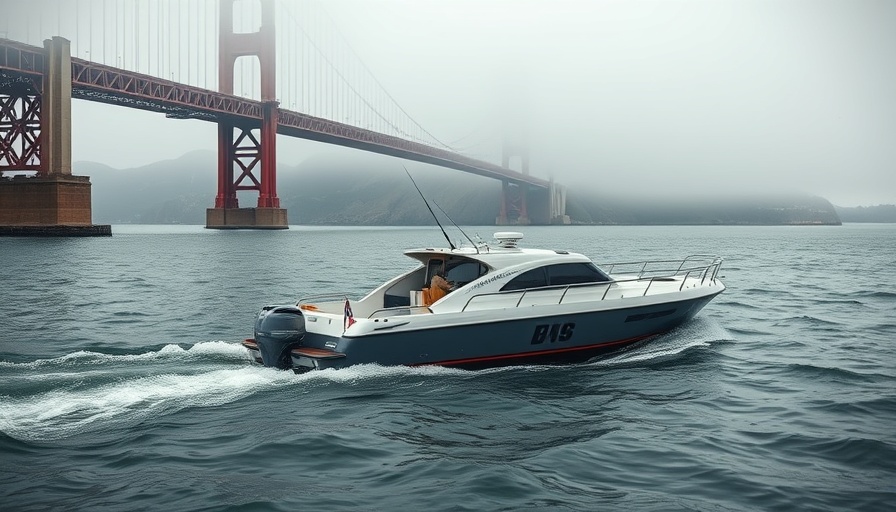
Electric Workboats Revolutionizing California's Waters
In a bold move to enhance sustainable maritime operations, Photon Marine and Silverback Marine have entered into a partnership that highlights the increasing role of electric vessels in reducing carbon emissions. Eight new electric workboat configurations have received the green light for funding through California’s Clean Off-Road Equipment (CORE) Voucher Program. With this initiative, commercial fleet operators across California will experience a transformative shift toward environmentally friendly operations.
Innovative Funding Opportunities for Fleet Operators
Starting in August, operators in various fields—including ports, harbor patrol, aquaculture, and more—will be eligible for this funding, which provides up to $400,000 per vessel. This remarkable incentive, part of California’s efforts to combat air pollution, marks a significant step toward making electric boats an economically viable alternative to traditional fuel-powered vessels.
The Power Behind Electric Workboats
At the heart of this initiative is Photon Marine's state-of-the-art zero-emission propulsion system, which delivers 300HP peak performance. Together with Silverback Marine's robust aluminum hull designs, these boats are engineered for rigorous environments. Notably, the configurations showcase models like the Silverback Grizzly for hydrography and the Silverback Sherpa for patrol tasks.
Why Electric Workboats Matter
The increase in electric vessel options is not just a matter of preference; it’s a necessity for combating climate change. As researchers note, the maritime sector is one of the significant contributors to greenhouse gas emissions. By adopting electric workboats, operators can significantly reduce their carbon footprints while also benefiting from lower operational costs. The instant torque and quiet performance of Photon’s electric motors promise to improve workflow efficiency as well.
Opportunities for Small Businesses and Disadvantaged Communities
Moreover, small businesses and operators in disadvantaged communities stand to benefit the most from this initiative. The additional $60,000 incentive for qualifying small businesses can help level the playing field, allowing these companies to access cutting-edge technology that was previously out of reach. The full experience of having access to advanced electric workboats could reshape the industry and the opportunities available for various stakeholders.
A Comprehensive Support System
Alongside the funding, Photon and Silverback are actively offering consultations to help organizations navigate the voucher application process. This commitment to supporting fleet operators ensures that more vessels can be transitioned to electric setups preemptively, maximizing the environmental benefits ahead of the August program launch.
Future Trends in Electric Vessel Adoption
As we look forward, this initiative may mark just the beginning of a broader shift in the maritime industry. Analysts predict growth in the electric vessel market, driven by both policy changes and technological innovations. This paradigm shift is essential for meeting regulatory climate goals and maintaining competitiveness within the maritime sector.
The Bottom Line
With the launch of these funded electric workboats, Photon Marine and Silverback Marine are paving the way for a sustainable future in maritime operations. It represents a significant milestone in the journey towards embracing clean energy alternatives, driving innovation while also contributing to vital environmental goals. Operators are urged to seize this opportunity to enhance their fleets sustainably and effectively.
Stay ahead of the curve—engage with the sustainable maritime movement today!
 Add Row
Add Row  Add
Add 




Write A Comment